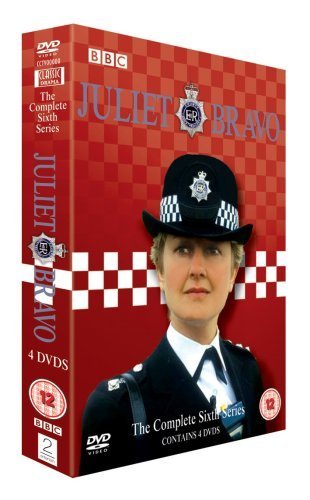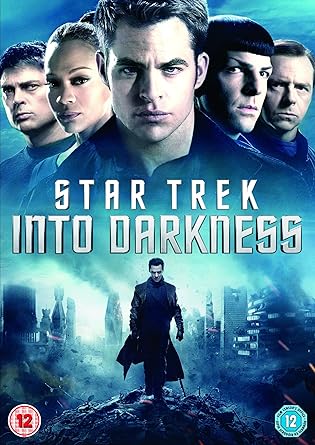The first UK police drama with a woman inspector, “The Gentle Touch” has been showing from the start. I’ve tried a few episodes but can’t really get into it. It has crimes, and some good actors, but it doesn’t seem to really have much of a firm identity as yet.
That’s not the case with Juliet Bravo, in which the Yorkshire location and people play a great part, or even with “The Bill” which is set in a fairly identifiable London milieu.
Back in the old days, Edgar Lustgarten was presenting “Scotland Yard” and a later series “The Scales of Justice”. Short little 30 minute dramas, they are masterpieces of concision which still stand up well today. And “Scales of Justice” has a very catchy theme tune from “The Tornadoes”, which the credits tell me, was released on Decca records.
The Tornados were an English instrumental group of the 1960s that acted as backing group for many of record producer Joe Meek's productions and also for singer Billy Fury. They enjoyed several chart hits in their own right, including the UK and U.S. No. 1 "Telstar" (named after the satellite and composed and produced by Meek), the first U.S. No. 1 single by a British group.
But who remembers them now?
I managed to catch up with “Star Trek: Into Darkness”. A lot of very interesting nods to “Space Seed” and “The Wrath of Khan” with this time Spock rather than Kirk doing the scream “Khaaan!!”. It was as enjoyable as the first series, and the ubiquitous Benedict Cumberbatch makes for a good villain, but it seemed just a little bit too CGI heavy as bits of the Enterprise are blown apart, and people fall screaming. Chris Pine reprises his role as Captain James T. Kirk, with Zachary Quinto as Spock, but while this Kirk is as headstrong as the original Shatner version, he doesn’t have close ups guerning to camera at all.
On the documentary front, BBC Four’s documentary about Nokia was fascinating:
“Once upon a time there was a large Finnish company that manufactured the world's best and most innovative mobile phones. Nokia's annual budget was larger than that of the government of Finland and everyone who worked there shared in the windfall. But global domination cost the company its pioneering spirit and quantity gradually took over from quality, with new phone models being churned out by the dozen. Market share eroded, until in 2016, mobile phone production in Finland ceased.”
“The Rise and Fall of Nokia is a wry morality tale for our times, told by those that lived and worked through the rollercoaster years in a company that dominated a nation.”
Apple’s iPhone with touch screen technology was a game changer, and then the rise of the cloned systems using Android operating system – and Samsung - was the final nail in the coffin.
As Himanshu commented:
“First, Nokia tried to compete by simply adding touch to the legacy Symbian - a patch that failed to deliver the fluid user experience of its rivals at the time. Then the switch to Windows Phone was announced way before there was actual hardware ready - a move that Elop hoped will boost developer interest, but ended up mostly killing Symbian sales 7 months before Nokia had an alternative to offer. Two mistakes of that magnitude, combined with the great delay in jumping to touchscreen were enough to cost the company's dominant position in the quickly moving market”
It is a fascinating story of how an up to date technology became overtaken and made obsolete.





No comments:
Post a Comment